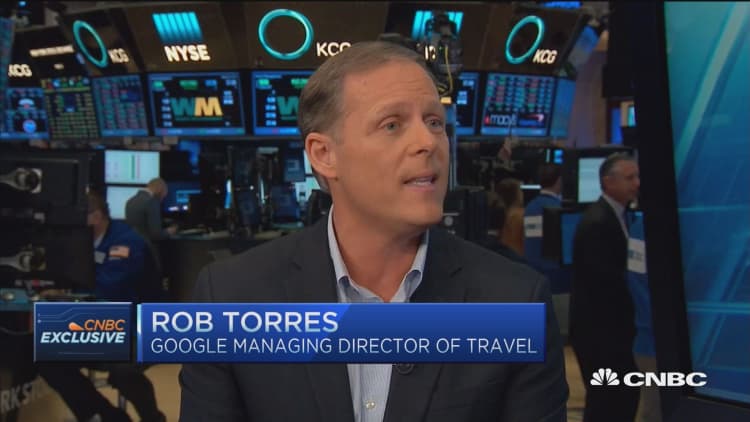
Google is announcing a major upgrade to how you can browse and book holidays. And it's already available on your smartphone.
Here's how it works. Pull up the normal Google search bar and simply type, say. "Europe Destinations." Two cities in Europe will pop up. Or more if you press the blue down arrow.
For each destination Google draws on its vast industry data feeds to display options for that holiday; suggested best dates, best airfares and average hotel prices.
Google also attaches videos, ideas on local tourist sights and other locations nearby with suggested itineraries.
You can even price cap your search so that only options within your budget are displayed.
The new service is called Google Destinations. And for the moment it's only available on mobile search.
Google wants to become the platform to which people naturally turn to browse and search for a vacation. In many respects, that's the online travel industry's current holy grail.
Huge potential profits lie in drawing members of the public to Google Destinations; identifying what elements of a holiday each might buy, where and on what date, and then funneling — or selling — those "qualified leads" to suppliers of that inventory who bid in real time for the business.
Google is clearly hoping its new product leapfrogs what's currently being offered by the industry's two other main aggregators; Kayak (owned by giant Priceline) and Trivago (owned by the other industry giant Expedia). Google's developers have clearly worked hard to streamline and simplify the product and it could be a very powerful commercial tool.
Ever since Google bought travel data provider ITA in 2010, people have been waiting for it to exert its potential power; the U.S. Department of Justice even recently allowed Expedia to take over more rival brands in anticipation.
But the negative impact that Google will have on its two big rivals is far from certain. It needs those rivals as business partners to buy its qualified leads. Priceline spent $3 billion on grabbing customers last year, much of that went to Google.
Google is not currently in the same game as Expedia and Priceline of supplying hotels or other travel inventory at the customer level; dealing with cancellations, customer phone lines or local owners. And both have taken on thousands of staff in recent quarters to strengthen their proprietary relationships, widening the competitive moat around their business models.
If Google Destinations can substantially increase the share of the travel market that it sells to its partners, it's a potential win-win for all involved.

